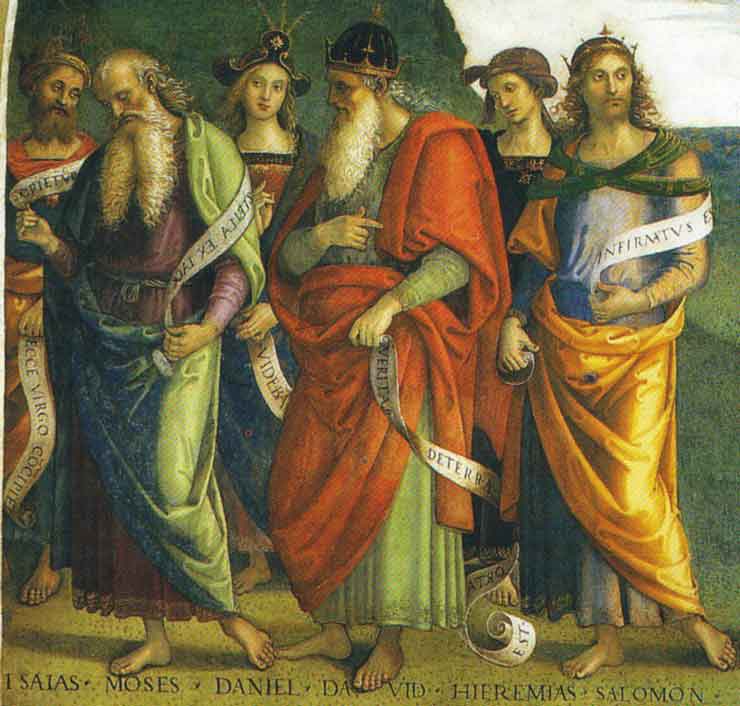
One of the more famous individuals from the close of the apostolic era was the man tradition remembers as "Saint Polycarp, Bishop of Smyrna and Holy Martyr.” Polycarp was born around 69-70 A.D. According to St. Irenaeus, Polycarp was a disciple of St. John the Apostle and was personally appointed by Apostles as the bishop of the church in Smyrna (modern day Turkey). St. Polycarp was the leading figure among the churches in Asia in the mid second century. The Martyrdom of Polycarp records that Bishop Polycarp served faithfully for eighty-six years (Mart Pol 9.3) before being heroically martyred on February 23, 155.
Because of his long life and direct connection to the Apostles he was an important defender of orthodoxy against such heretics as Marcion and Valentinus. St. Irenaeus recounts that he knew Polycarp from his childhood, and he revered him as a holy saint. Irenaeus notes, “I can even describe the place where the blessed Polycarp used to sit and discourse-his going out, too, and his coming in-his general mode of life and personal appearance, together with the discourses which he delivered to the people; also how he would speak of his familiar intercourse with John, and with the rest of those who had seen the Lord.” He recalls the story of Marcion coming to Polycarp and asking if Polycarp would recognize him. Polycarp replies, “Of course I recognize you, the first born of Satan!” (Adv Haer 3,3,4).
St. Irenaeus relates how St. Polycarp journeyed Rome around 150-155 A.D. A dispute had arisen over the date of Easter between the church in Asia and the Church in the West. Polycarp met with Pope Anicetus. Each bishop felt obliged to follow the traditions they had been handed down. Polycarp felt Easter should be celebrated on the 14th day of the Jewish lunar month of Nisan, while Anicetus on the Sunday after the 14th of Nisan. Polycarp appealed to the practice of St. John and the Apostles, while Anicetus to the custom of his predecessors and to dominical usage. Although the Pope and bishop Polycarp could not achieve common ground in their practice they remained in communion and parted on the best of terms. While there could be no tolerance of the heretical views of Marcion or the early Gnostics, the Church could embrace different liturgical traditions.
St Irenaeus tells us that Bishop Polycarp wrote a number of letters “to neighboring Churches to confirm them, or to certain of the brethren, admonishing and exhorting them.” Unfortunately only St. Polycarp’s letter addressed to the Philippians remains. The theme of the letter is summed up in Polycarp’s exhortation, “‘Therefore prepare for action and serve God in fear’(1 Pet. 1:13; cf. Ps. 2:11) and truth, leaving behind the empty and meaningless talk and the error of the crowd” (Pol Phil 2.1). The letter is a rousing call to live the Christian life fully and consistently in the midst of the confusion and temptations of the world. The letter is filled with quotations from the New Testament and St. Clement’s letter to the Corinthians. One can clearly see the “interwovenness” of Sacred Tradition in his letter. The living interpretive presence of Christ is expressed in the Church through his apostolic ministry. Polycarp notes, “For I am convinced that you are all well trained in the sacred Scriptures” (Pol Phil 12.1). Scripture is the center of the Church’s Tradition and it is made manifest in the preaching, teaching, doctrine and liturgy of the Church.
The Church in Philippi is again battling the heresy of docetism which denies that Jesus came in the flesh. Polycarp complains that these heretics twist “the sayings of the Lord to suit their own sinful desires” (Pol Phil 7.1). Sacred Scripture requires the interpretive presence of the Church. Knowing our faith well also helps us to live our faith in the midst of our daily life. One difficult distraction that Polycarp mentions is greed and the love of money (Pol Phil 2.1; 4.1; 5.2; 6.1; and 11.1). This was apparently the difficulty of a fallen away presbyter of the Church in Philippi named Valens (Pol Phil 11.1-4). Polycarp councils the Philippians to treat Valens kindly in hopes of winning him back from his waywardness.
The ultimate test of a disciple’s faithfulness is martyrdom. Polycarp’s martyrdom is recounted in detail in the Martyrdom of Polycarp (AD 156). This document is a combination of a letter and an act of martyrdom or eyewitness account of martyrdom (Cf. Acts 7, Revelation 6:9-11). The account of Polycarp’s death is the first full account of this type. Suffering death by Martyrdom was considered the ultimate imitation of Christ. The ‘baptism of blood’ of the martyr was considered the equivalent of normal Baptism. Since at least the second century the anniversary of the martyr’s death was celebrated with a feast at the tomb of the martyr and later churches were built over these tombs. The martyrs were venerated as powerful intercessors and their relics were sought after. St. Polycarp’s death is extremely heroic. The witnesses record, “Then the materials prepared for the pyre were placed around him; and as they were also about to nail him, he said: ‘Leave me as I am; for he who enables me to endure the fire will also enable me to remain on the pyre without moving, even without the sense of security which you get from the nails.’” (Mart Pol 12.3). The fire was miraculously unable to kill Polycarp, so his executioner had to stab him with a dagger. His body was later cremated by the soldiers and his friends gather up his bones and began to celebrate the birthday of his martyrdom.
Holy Mary, Queen of Martyrs, pray for us.



















